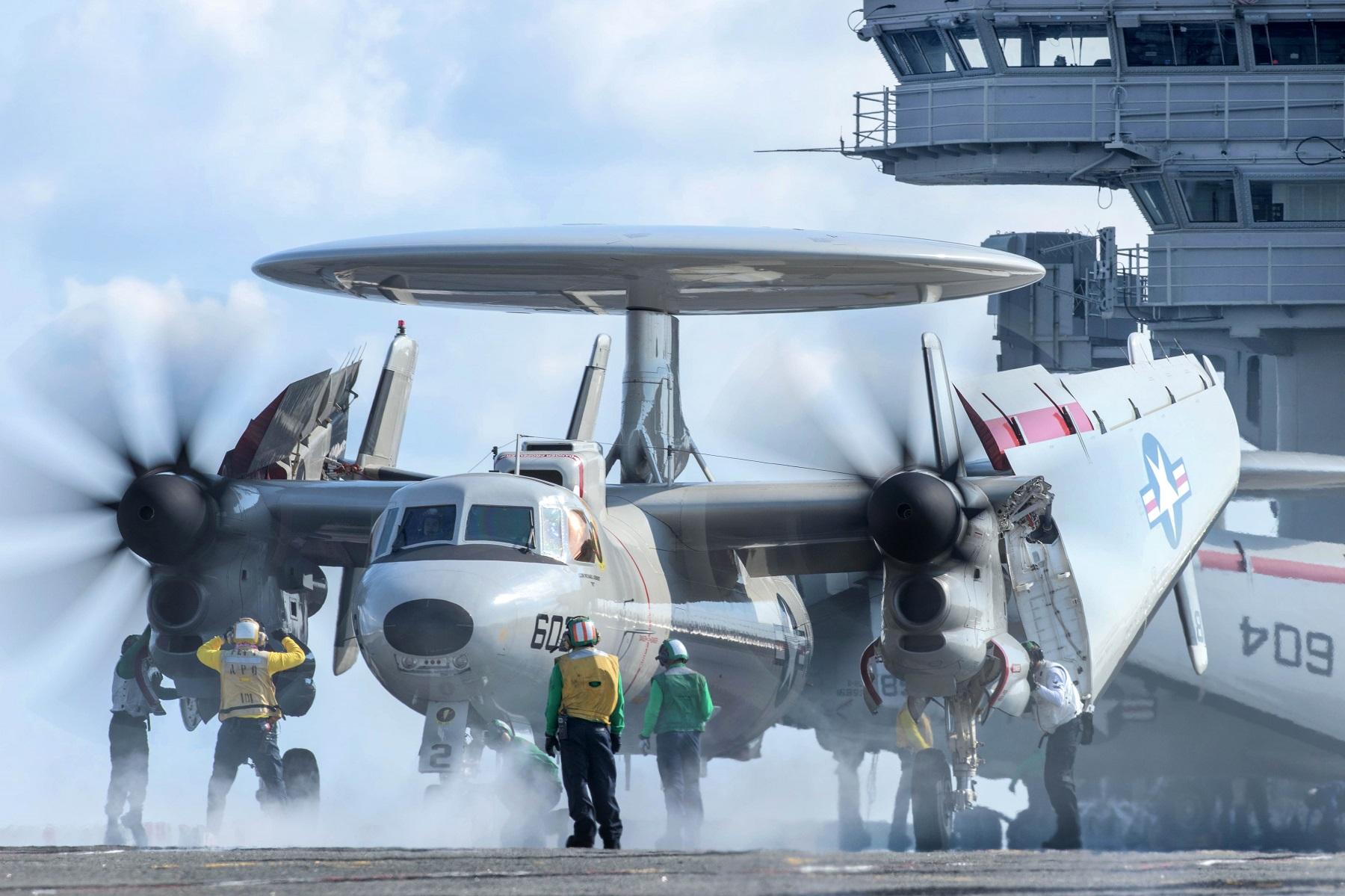The U.S. State Department has made a determination approving a possible Foreign Military Sale to the Government of Japan of E-2D Advanced Hawkeye (AHE) Airborne Early Warning and Control (AEW&C) Aircraft and related equipment for an estimated cost of $1.381 billion. Also included are aircraft ancillary equipment; modifications; spare and repair parts; support equipment; publications and technical documentation; software; personal protective equipment; personnel training and training equipment; ferry services; U.S. Government and contractor logistics, engineering, and technical support services; and other related elements of logistics and program support. The proposed sale will improve Japan’s ability to effectively provide homeland defense utilizing an AEW&C capability. Japan will use the E-2D AHE aircraft to provide AEW&C situational awareness of air and naval activity in the Pacific region and to augment its existing E-2C Hawkeye AEW&C fleet. Japan will have no difficulty absorbing this equipment into its armed forces. The principal contractor will be Northrop Grumman Corporation Aerospace Systems, Melbourne, FL.
The Government of Japan has requested to buy:
— up to five (5) E-2D Advanced Hawkeye Airborne Early Warning and Control Aircraft;
— twelve (12) T56-A-427A Engines (10 installed, 2 spares);
— six (6) Multifunction Information Distribution System Joint Tactical Radio System Terminals (5 installed, 1 spare);
— five (5) APY-9 Radars (installed);
— five (5) AN/AYK-27 Integrated Navigation Control and Display Systems (installed);
— twelve (12) LN-251 Embedded Global Positioning Systems/Inertial Navigation Systems with Embedded Airborne Selective Availability Anti-Spoofing Module or M-Code Receiver (10 installed, 2 spares); and
— six (6) ALQ-217 Electronic Support Measures Systems (5 installed and 1 spare).

The Northrop Grumman E-2 Hawkeye is an American all-weather, carrier-capable tactical airborne early warning (AEW) aircraft. This twin-turboprop aircraft was designed and developed during the late 1950s and early 1960s by the Grumman Aircraft Company for the United States Navy as a replacement for the earlier, piston-engined E-1 Tracer, which was rapidly becoming obsolete. The fourth major version of the Hawkeye is the E-2D, which first flew in 2007. The latest E-2 version is the E-2D Advanced Hawkeye, which features an entirely new avionics suite including the new AN/APY-9 radar, radio suite, mission computer, integrated satellite communications, flight management system, improved T56-A-427A engines, a glass cockpit and aerial refueling. Variants of the Hawkeye have been in continuous production since 1960, giving it the longest production run of any carrier-based aircraft. The E-2 also received the nickname “Super Fudd” because it replaced the WF (later E-1) “Willy Fudd”.
The Japan Air Self-Defense Force bought thirteen E-2C aircraft to improve its early warning capabilities. The E-2C was put into service with the Airborne Early Warning Group (AEWG) at Misawa Air Base in January 1987. On 21 November 2014, the Japanese Ministry of Defense officially decided to procure the E-2D version of the Hawkeye. In June 2015, the Japanese government requested to buy four E-2Ds through a Foreign Military Sale. In September 2018 the Defense Security Cooperation Agency (DSCA) notified Congress of the possible sale of up to nine E-2Ds to Japan. A sale of up to five E-2Ds for JASDF was approved by the U.S. State Department and DSCA notified Congress on 7 March 2023. The sale includes ancillary equipment, spares and training support for an estimated $1.38 billion. The proposed five E-2Ds are in addition to the six E-2Ds Japan already has and the seven more it has on order. However, the Japanese Ministry of Defense did not reveal in its most recent proposed budget any intention to acquire more aircraft.












